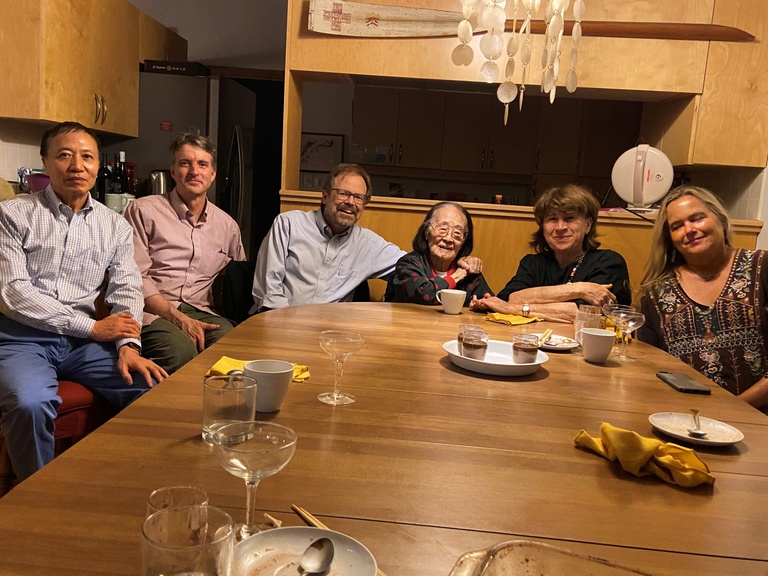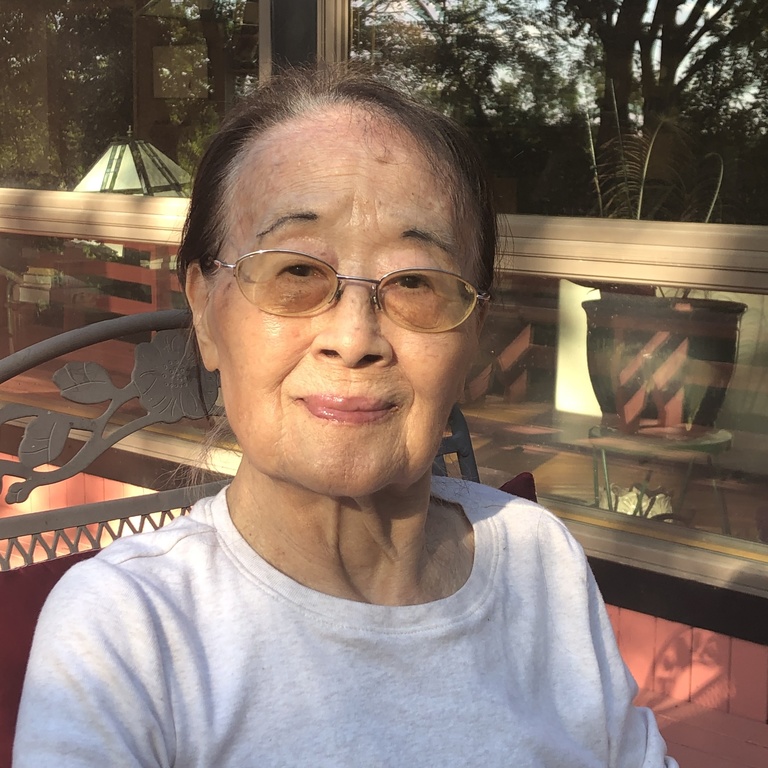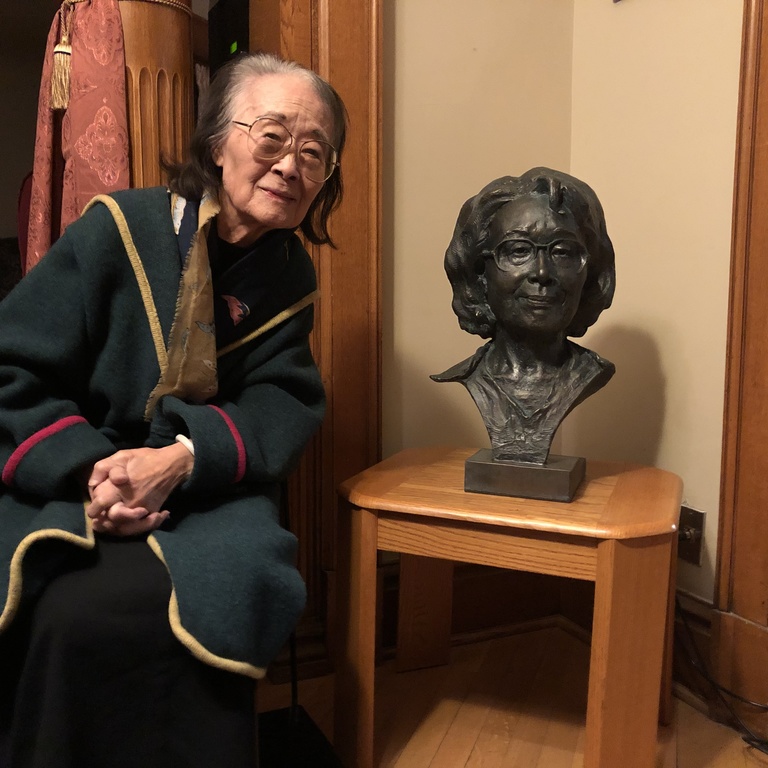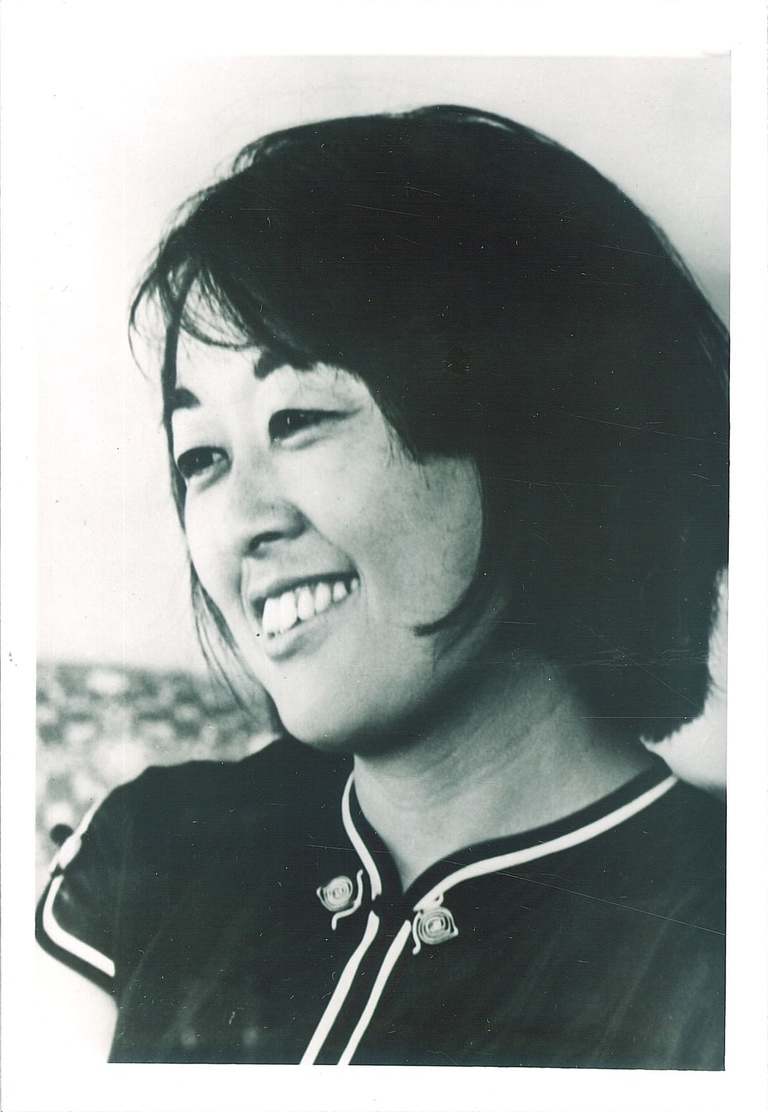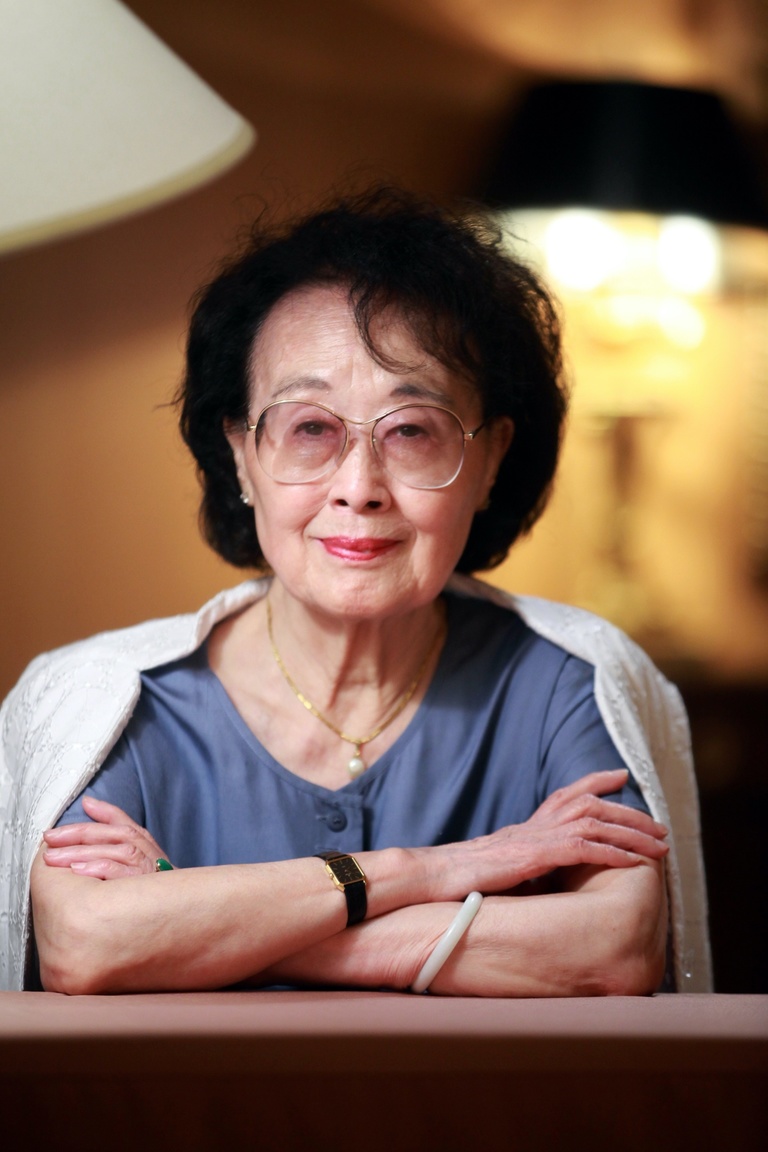Hualing Nieh Engle, a University of Iowa alumna, professor emerita, and cofounder of the renowned UI International Writing Program, has died. She was 99.
The Chinese novelist, translator, and editor passed away peacefully on Oct. 21, 2024, in the Iowa City home she had long shared with her late husband and former Iowa Writers’ Workshop director, Paul Engle.
Hualing was already a published author when she met Paul in Taiwan while he was touring Asia to scout literary talent in 1963. He invited her to study at the workshop, and she accepted. After having a formative experience in Iowa City’s literary community and earning an MFA from Iowa in 1966, Hualing hatched an idea.
“Iowa City is such a wonderful place for writers, so I said, ‘Why not expand the workshop to focus on international writers?’ It was a natural thought,” she said in an interview in 2012.

Paul, whom Hualing later married, was intrigued — and in 1967, the two collaborated on the design of a new, standalone arts residency for international writers on the UI campus. The International Writing Program (IWP) was born.
The nonacademic program, which receives support from the U.S. Department of State and many national arts organizations, brings several dozen international writers to the UI campus each fall for a residency during which they focus on writing, engage with each other and with American writers and students, and participate in public events. Since its founding, the program has brought to Iowa more than 1,600 writers from more than 160 countries. For their efforts to promote cultural diplomacy by convening writers from around the world, especially those from regions overseen by repressive governments, the Engles were nominated for the Nobel Peace Prize in 1976.
Hualing was first drawn to writing as a young girl, when her grandfather captivated her by chanting classical poetry. When her teachers encouraged her to pursue writing, she studied English literature at National Central University in China. But as the political climate grew more turbulent — her father was executed in the Chinese civil war when she was 11 — she fled with her family to Taiwan, where she continued writing and worked as an editor, translator, and teacher. Before enrolling in the Iowa Writers’ Workshop, she had published short stories, translations, and a novel.
Her work includes Mulberry and Peach (1976), the English translation of which won an American Book Award in 1990; Black, Black, the Most Beautiful Color (1983); and After Thirty Years (1990). She also wrote a memoir, Three Lives, in 2004.
International Writing Program
Since 1967, more than 1,600 writers from more than 160 countries have been in residence at Iowa’s International Writing Program. Notable alumni include Chilean writer José Donoso; Jamaican writer Barbara Gloudon; Turkish novelist and Nobel Prize winner Orhan Pamuk; Slovenian poet Tomaz Šalamun; South Korean author and Nobel Prize winner Han Kang; and Chinese novelist and Nobel Prize winner Mo Yan.
Today, the average cohort includes about 30 writers from more than 25 different countries. The IWP has also expanded its programming to include a summer camp where young writers from inside and outside the U.S. work and learn together; a digital learning program offering a range of virtual writing workshops and asynchronous learning opportunities; and a series of cultural exchanges in which U.S.-based writers travel abroad to share expertise and ideas.
The Paul and Hualing Nieh Engle Gallery on the IWP website includes a number of historical resources about the program.
At Iowa, Hualing co-directed the IWP with Paul until his retirement in 1977 and then took over as sole director until her retirement in 1988. The couple co-taught a translation workshop and co-edited 11 volumes of poetry in translation.
“It was no accident that the first translation workshop in the English-speaking world was offered at Iowa,” says Aron Aji, director of UI translation programs. “Hualing, translator of many great works into and from the Chinese, knew the significance of translation in the circulation of literature around the world, and was instrumental in injecting this urgent art into the creative DNA of the university.”
After her retirement in 1988 and Paul’s death in 1991, Hualing remained involved in the IWP, serving on its advisory board and hosting writers from Chinese-speaking regions of the world. In 2012, the university honored Hualing with its International Impact Award, an award established by UI International Programs to recognize distinguished alumni and other individuals with significant ties to the university who have made important contributions to promote global understanding. See Hualing receive the award and discuss her work.
Loren Glass, chair of the Department of English, says Paul and Hualing’s relationship was “surely a marriage of true minds, a professional and personal partnership which sustained both and enabled them to build Iowa City into a central node in the networks of world literature."
“Hualing was a true citizen of the world and will be mourned and remembered all around it,” Glass says.
Hualing also received several honorary doctorates, a governor’s award for distinguished service to the arts, and a medal of merit from Poland’s Ministry of Culture. In 2008, she was inducted into the Iowa Women’s Hall of Fame.
Christopher Merrill, IWP director since 2000, was traveling abroad when he learned of Hualing’s death.
“Nieh Hualing Engle was not only an extraordinary writer, translator, and visionary administrator, but also a generous guide and friend to me from the day I arrived in Iowa City,” says Merrill. "She introduced me to her first homes, China and Taiwan, and made my tenure in her third home, Iowa City, a source of constant mirth, pleasure, and insight. She brightened the world for writers everywhere.”
In a previous interview, Merrill said that by founding the IWP, the Engles “opened up the magic of Iowa City to the rest of the world. No wonder this became the first UNESCO City of Literature in the New World.”
Hualing, born in China in 1925 was the oldest of five siblings, is survived by her sister, Hua-jung Murray; brother, Hwa-Tung Nieh; daughters, Elena Lan-Lan Wang and Hsiao-wei Wang Rupprecht; son-in-law, Klaus Rupprecht; granddaughter, Anthea King, and her husband, Joseph Pascual; grandson, Christoph Rupprecht; and great-grandchildren, Charlotte Pascual and Leo Pascual. Her husband, Paul, died in 1991.
The funeral will be at 2 on Nov. 3 at Oakland Cemetery in Iowa City.
